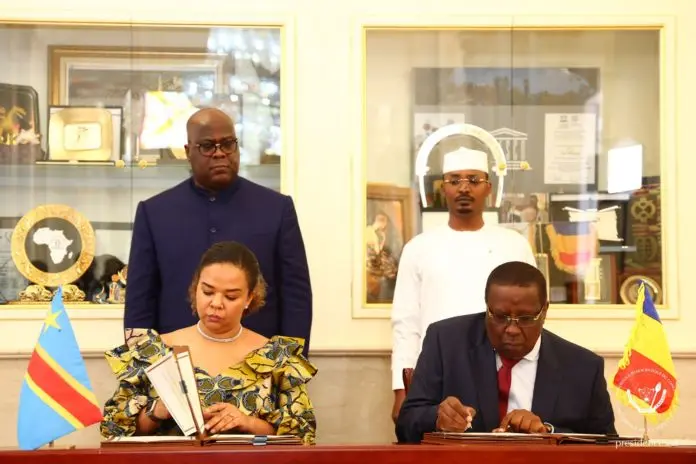- P.O. Box: 11482 Yaoundé, Cameroon; Headquarters: Efoulan, Yaoundé 3
- contact@caessinternational.org

Chad Joins Regional Efforts for Peace in Eastern Congo by Calling for Urgent AU and UN Intervention
Chadian President Mahamat Idriss Déby called on Saturday for urgent international intervention in the Democratic Republic of Congo (DRC), in a statement published on social media. This stance comes as leaders of the East African Community (EAC) and the Southern African Development Community (SADC) met in Dar es Salaam. The Tanzanian summit notably decided to merge the peace processes of Luanda and Nairobi to strengthen negotiations.
The conflict in the DRC has seen a resurgence of violence since 2021, with intensity increasing further since the start of this year. Since 1998, the war is estimated to have caused 6 million deaths, a figure often cited. These violences are closely linked to the exploitation of mines in eastern Congo, which are rich in minerals essential for the ecological transition of Western countries. Since 2021, North Kivu province in eastern DRC has experienced renewed violence between government forces and the March 23 Movement (M23) rebels. Since late 2024, the group has advanced southward, seizing territories with the support of Rwanda.
In the DRC, President Félix Tshisekedi aims to regain territories lost to the rebels, including the largest city in the east, Goma, and prevent them from conquering more. He accuses Rwandan leader Paul Kagame of supporting M23 by providing weapons and troops, accusing Kigali of invading Congolese territory to plunder the country’s mineral wealth and orchestrate regime change.
The claim that Rwanda supports the M23 offensive is based on evidence presented in a UN report and widely accepted by many African and Western governments, who have demanded Kagame withdraw his forces.
However, to Tshisekedi’s great frustration, none have followed through on words with action, ignoring Kinshasa’s calls for sanctions and other tough measures. It appears that Article 4(b) of the AU Constitutive Act concerning the “respect for borders existing at the time of independence” has become a flexible principle, subject to the contingencies of international power dynamics. Meanwhile, pending changes in the global geopolitical landscape, the international community’s message to the Congolese population seems clear: SUFFER IN SILENCE!